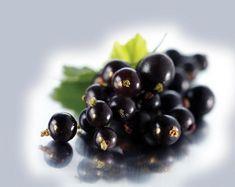
Standing in the middle of a dewy blackcurrant field, grower Jo Hilditch picks a handful of ripe and fragrant berries. “Even in the middle of winter, when it’s just the bud, you still get that lovely smell,” she says.
The field, surrounded by acres of farmland, is in the process of being harvested. A specialist harvester works its way up and down the field, shaking the bush and dropping the berries onto low-level conveyors and then into a half-tonne crate containing the crucial ingredient used to make Ribena.
About 90 per cent of blackcurrants grown in the UK are produced for GSK, manufacturers of the drink. The berries used are a mix of different varieties, such as Ben Gairn and the sweeter Ben Vane. But although Ribena dominates the market, growers are getting creative and finding other uses for their crops. Hilditch, who is also chair of the Blackcurrant Foundation, launched her own brand of cassis, which, three years on, is proving a real success. She now makes 50,000 litres per year in a former sheep-keeping barn and supplies Hix, Roast and Jamie Oliver with two to three cases every week.
James Moss, her head chef, is in charge of the production. He mixes Ben Hope berries with strawberry, raspberry and pear juice fermented with champagne yeast, and then bottles it by hand.
The finished product is not exactly the same as French crème de cassis, as it is a little less sweet, but works well as a mixer for champagne cocktails or to cook with, for example with venison. “My ambition is to be in every single deli in the UK,” reveals Hilditch. “But delis are hard to get into, they’re very cautious with new products.”
That may be the case, but it seems that word is spreading fast. Jean-Christophe Novelli is a fan, and orders are increasing year on year - soon the production may have to be moved out of the sheep-keeping barn.
Hilditch is not the only grower working on such a sideline. Anthony Snell of AJ & CI Snell, also based in Herefordshire, sells his organic blackcurrants online. Within hours of being picked, the berries are frozen and ready to be delivered. “We treat them much the same as frozen peas,” explains Snell. “It’s the ideal way for pubs and restaurants to buy blackcurrants, as they can order and receive IQF berries packed in dry ice the next day.”
As the largest organic blackcurrant grower in the UK, Snell is anxious to find a real niche for his product. Next on the agenda is conquering the fresh market. The idea is that blackcurrants would be bought fresh and enjoyed as a snack, the same way as blueberries - currently only an option in a select few stores, such as Harrods’ foodhall and some farm shops. “We must develop a punnetable, more snackable variety of blackcurrants,” says Snell. “We have done fresh blackcurrants for Sainsbury’s in the past, but it’s expensive because you need around 200 pickers to be able to supply the right quantities.”
It’s an expensive crop to grow, regardless of picking method. Snell has been growing blackcurrants organically for 10 years and this is the first year he hopes to make a profit. “All the supermarkets want organic, but at the same price as conventional. We need a 40 per cent premium.”
Despite this, things are looking positive. While sales of conventional blackcurrants are up by 25 per cent over the last nine months, organic are up by 110 per cent. The question is whether the big supermarkets are the right arena for a niche product like fresh organic blackcurrants. Snell supplies Marks & Spencer with berries for their frozen M&S British Summer Fruits selection but admits he hasn’t yet managed to persuade them to sell blackcurrants on their own.
In order to raise their popularity, the plan is to market the berries’ superfood credentials. According to Professor Derek Stewart of the James Hutton Institute, eating 100 grams of blackcurrants per day increases haemoglobin levels in the blood, which opens up the arteries and helps prevent cardiovascular diseases. The berries are also packed with vitamin C and a good source of antioxidants.
Snell hopes the message will get across to consumers. “They are an amazing, undervalued fruit.” -



